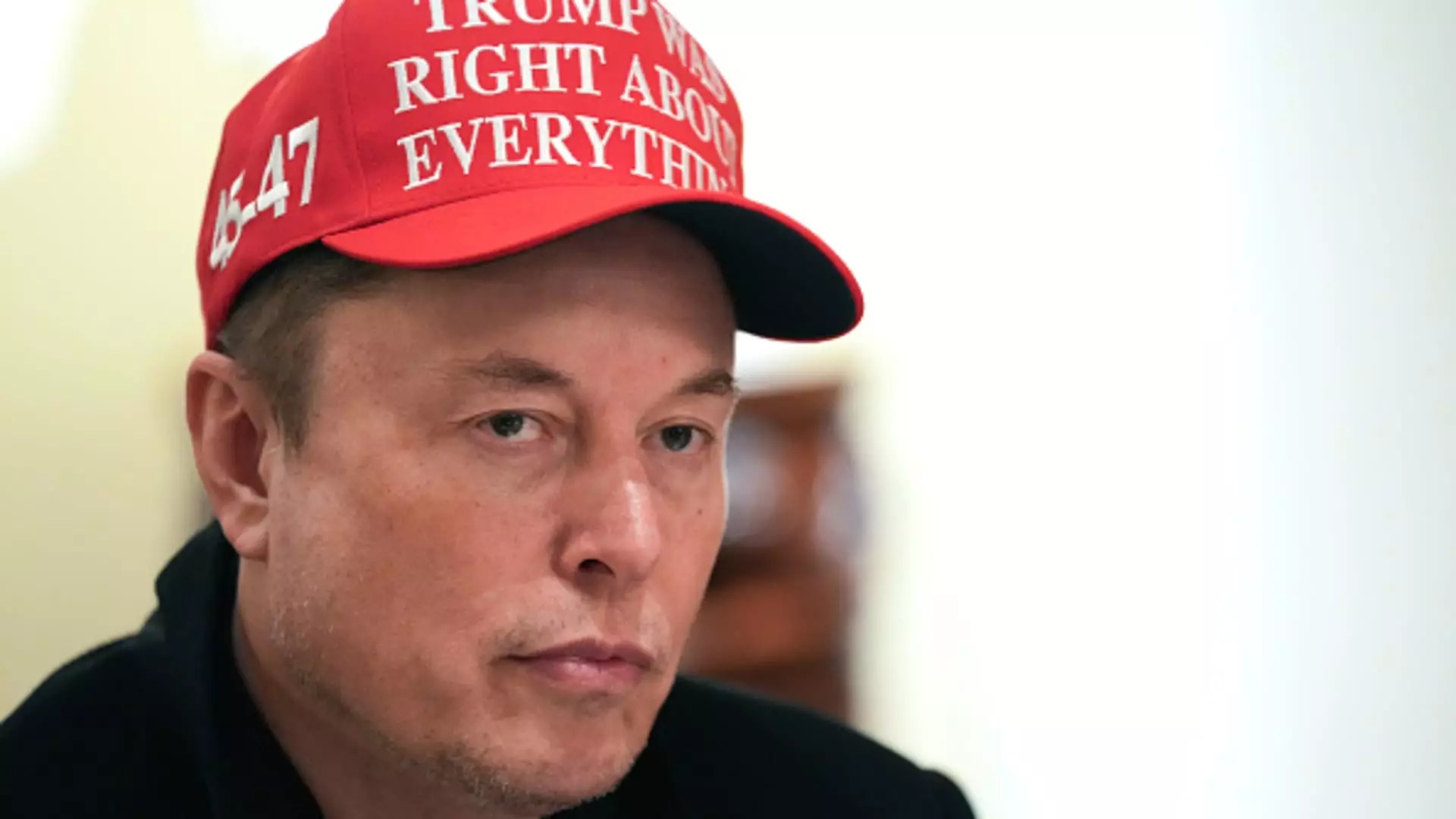Tesla’s shares have plummeted almost 44% this year, a dramatic decline that leaves investors reeling and wondering about the company’s future. The latest dip of nearly 6% on the eve of the first-quarter earnings report could be attributed to a concoction of factors, including an alarming “ongoing brand erosion.” Analysts perceive a growing disconnect between consumer sentiment and the once-revered Tesla brand, painting a disconcerting picture of the electric vehicle manufacturer.
This downturn follows a lethargic quarter for Tesla, which ended a stretch of disappointing financial results that even the most ardent supporters cannot ignore. With stock prices consistently hovering perilously close to their lows for the year, alarm bells are ringing louder in the investment community. Twelve significant drops of over 5% in just one year? This isn’t just a hiccup; it’s a crisis in the making.
Elon Musk’s Distractions
Elon Musk’s considerable distractions outside of Tesla, particularly his engagements with the Trump administration, have unraveled much of the goodwill that Tesla built up over the years. Critics might argue that Musk’s political maneuverings have eclipsed his primary role as innovator and CEO. Corporate leaders must steer clear of controversies that jeopardize their brand, and Musk appears to be wandering too far afield.
In an unprecedented interaction, investors clamored for answers regarding Musk’s political aspirations, with over 300 inquiries focused on Tesla’s self-driving technology and other advancements. What’s particularly telling is that questions about Musk’s political activities were prominent among investor concerns. An eye-catching inquiry inquired about the board’s strategy in mitigating the brand harm caused by Musk’s political engagements. When stakeholders’ focus shifts toward the management’s interpersonal choices rather than the performance of the product, the company faces a severe identity crisis.
Protests and Backlash
The backlash against Musk’s political stance isn’t just industry babble; it’s manifesting in tangible consequences for Tesla. Protests and boycotts are rampant this year, and criminal activity targeting Tesla facilities adds a new layer of threat to its operations. The once untouchable image of Tesla is succumbing to the pressures of a politically charged environment, transforming the brand into a polarizing symbol rather than a beacon of innovation.
From Europe to the U.S., Musk’s political views and actions have ruffled feathers, leading to a startling decline in consumer confidence. Research shows that considerably fewer consumers are willing to consider Tesla as a purchasing option—down from 46% in January 2022 to a mere 27% in March 2023. This drop in sentiment does not just reflect immediate concerns; it highlights a potentially irreversible trend harmful to Tesla’s long-term brand value.
China’s Competitive Landscape
Compounding the dilemma is the looming shadow of competition in China, where Tesla is increasingly viewed not as a leader but as just another player in a saturated market. Nationalistic consumer behavior is shifting demand toward domestic brands, leaving Tesla vulnerable to a decline in awareness and sales. Oppenheimer analysts emphasize that the likes of political turbulence and trade tariffs imposed by the Trump administration may force Tesla to export more vehicles, complicating their pricing strategy and lowering margins.
The prospect of intensified competition within China marks a critical chapter for Tesla—a chapter that could end with the company losing significant market share if it cannot adapt quickly. It’s an absurd reality: Tesla’s losses are being driven by not just competitors but also by the very political forces Musk is entangled with. The precarious dance between geopolitics and corporate success is proving to be harrowing for electric vehicle enthusiasts who once deemed Tesla a surefire winner.
Investor Sentiments in Decline
In the realm of investment, perceptions have transformed abruptly. Wall Street is abuzz with skepticism, as firms like Barclays downgrade their ratings on Tesla and slash price targets. Shareholders are left grappling with how a company once heralded for its innovation could find itself in a precarious predicament due to external distractions and the bubbling cauldron of political dynamics.
Dan Ives from Wedbush Securities captures this sentiment poignantly, lamenting that Tesla is now regarded as a political symbol synonymous with the Trump administration—something that seems to tarnish a once-bleeding-edge company. Investors are now bracing for a “turnaround vision” from Musk, hoping his attention shifts back to the automotive innovation that garnered initial love and loyalty. Yet, can a visionary rebound from self-inflicted brand damage?
In light of these significant challenges, the narrative surrounding Tesla extends far beyond just vehicle manufacturing. It’s a case study in how politics can ripple through corporate waters, affecting not only stock prices but also the very foundation of consumer trust and loyalty. As Tesla navigates these turbulent waves, the outcome remains uncertain, and its trajectory crucially hinges on its leader’s next moves.


Leave a Reply